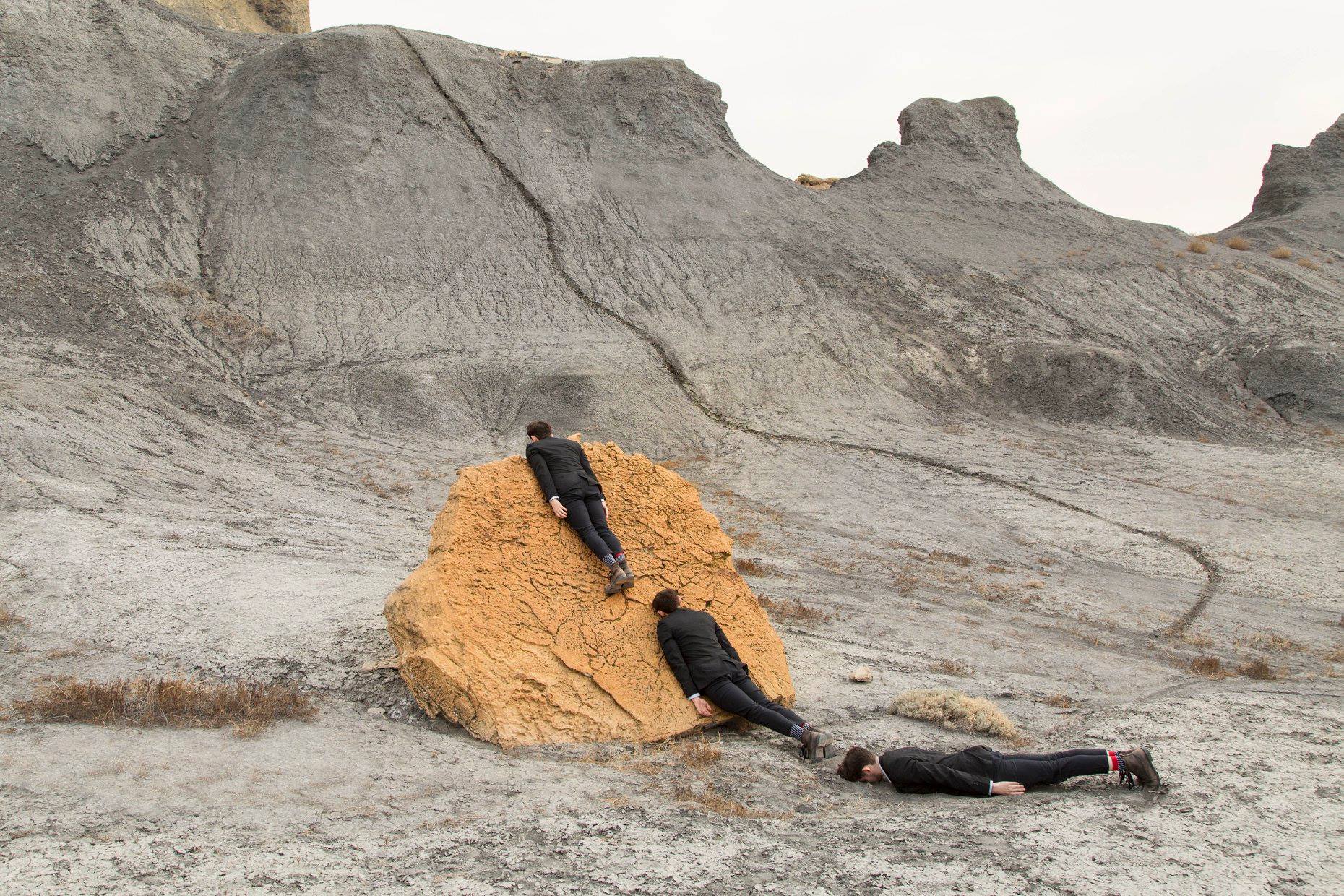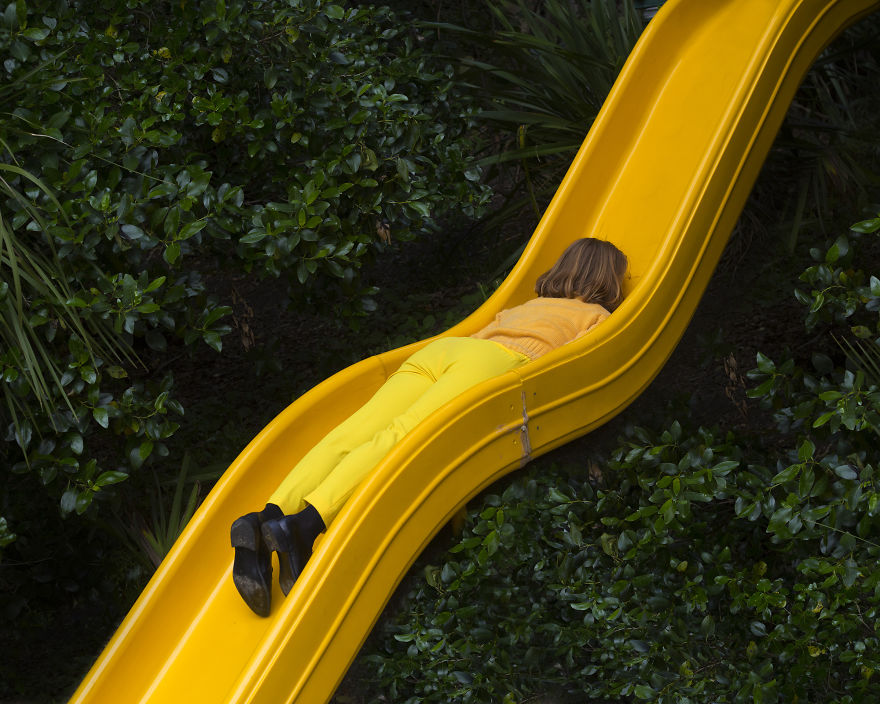Photographer Series: Ben Zank

The emptiness in Ben Zank’s photographs is hilarious, if you don’t dwell on it too much. If you do, you might find yourself overcome by the solitude, taken aback by their nihilism: a figure leisurely reposes, perhaps after a long day of work. It all appears normal, except he lacks his head. The nonchalance seemingly asks, “Is this it in life?”
Such dark humor, surrealism, and minimalism characterize Ben Zank’s work. Born in Brooklyn in 1991, Zank studied journalism in college. In an ironic turn of events, Zank had trouble expressing himself through words, and discovered photography as a more natural medium. His first interaction with a camera occurred when he unearthed a Pentax ME Super in his grandmother’s attic, but soon turned to digital photography and Photoshop.
Zank’s strange juxtapositions exude humor. From “Layer Cake” and “Going Under” to “Daily Agenda” and “The Politician,” his pieces embody his generation’s disillusionment with government and authority. Their titles propose a 21st century spin on themes from the French Revolution. The beheaded, the cake, and the politician on a stick—Zank has found a way to modernize a dark historical time.
His 2013 series “Suit” took a different turn from his typical surrealism and painterly approach to Photoshop. The subjects of the black-and-white photos are strikingly homogenous. Each man is hauntingly one of a multitude of clones. Each hidden face keeps the viewer guessing. The suit, a symbol of adult life in the United States, is the subjects’ uniform. Zank left each photo titled with only a number, perhaps commenting on the monotony of corporate adult life. With its linearity and repetition, “Suits” leaves you questioning not only the narrow path of aging but the conformity in society.
With his move to New Zealand, emotions became the centerpiece of Zank’s photography, in particular, isolation and loneliness, which he experienced bountifully once he moved across the globe. The dark surrealism complements the Freudian themes within his work. Despite the massive shift in his life and artwork, Zank’s style persists, featuring faceless human subjects.
Zank says, “These photographs represent my present and past emotions. Being master of oneself, feeling impotent, stuck, freeing oneself up again, and so on. This must be seen as a struggle for power.”















